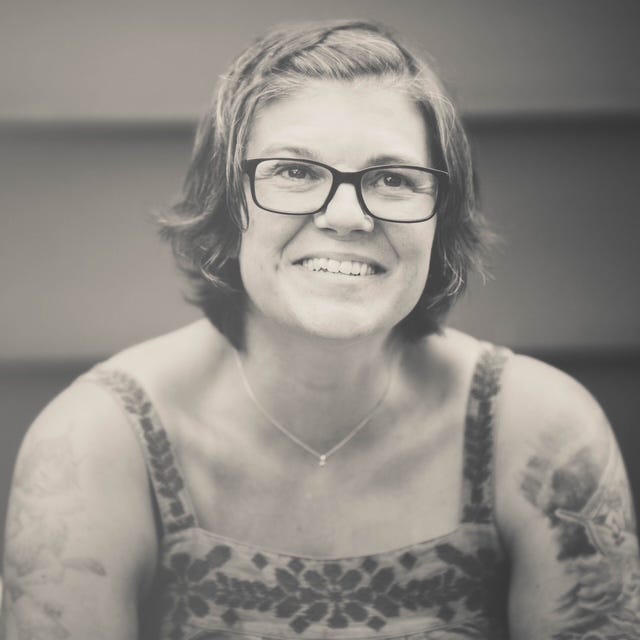Deserving Of Joy: A Conversation with Stephanie Land
On the downside of resilience, the privilege to have feelings, freedom from anxiety, mothering oneself, mothering two children, empathy, why poor people can't have nice things, and horses!
Intimate conversations with our greatest heart-centered minds.
’s writing addresses so many of the issues that make life harder than it already is: poverty, misogyny, classism, abuse, and trauma; lack of support for education, mental and physical health, basic food and shelter, and child care. Her writing is clean, clear, and razor-focused. She is unapologetically telling the truth of her life. And the truth of Stephanie’s life is representative of the lives of millions and millions of other Americans.Maid, Stephanie’s first memoir, chronicled her escape from an emotionally and verbally abusive relationship with her eldest daughter’s father to cleaning houses for rich people to dreaming of attending college. With clarity and compassion, Stephanie revealed that being poor in America takes a tremendous amount time and energy, not only the hours of hard labor but the constant battle to prove you qualify for public aid. It hit the New York Times bestseller list in its first week. And Netflix soon snatched it up for a mini series staring Margaret Qualley. It became their highest watched series and The Domestic Violence Hotline received more calls that month than any other in their history.
Class, Stephanie’s second memoir, was published in 2023. It picks up with Stephanie moving to Montana and attending college. But rather than life improving, it becomes harder than ever. Between the labyrinth of university requirements, bigoted professors, mounting student loans, child support battles, and SNAP recertification, Stephanie often went hungry. Throughout it all, Stephanie remains true to her desire to write. Lucky for us!
Stephanie lives in Missoula, Montana with her two daughters, two dogs, and a horse. She’s working on her third book, The Privilege To Feel and writes the newsletter of the same name.
In one way or another I feel like all your writing is about taking care of each other. Ways that it’s happening. Ways that it’s not happening. The importance of kindness and generosity and empathy. What do you see as our responsibility to one another from the individual level right up to governmental level?
The responsibility lies in recognizing the invisible cushions that we have underneath ourselves that other people don't have. And to recognize our own inner judgments and preconceived notions about someone before we even get to the point where we're thinking that we should help them. Because it's very easy to talk ourselves out of that. With people in poverty in particular, there's a lot of blame put on them, that they are somehow responsible for or even chose their situation.
I struggled with feeling like I should help everyone when I became successful and had money. I gave so much of it away to nonprofits and friends. I felt like I had to do that. I was just talking about this with my therapist—not necessarily survivor’s guilt, but that it’s so uncomfortable for me to have something, knowing that someone else does not. So I tried to even it up. I was helping way too much to the point where I was in trouble financially.
You write about resilience. Due to my health struggles, this is something people say about me all the time, and you got it a lot, too. You write: “resilience as a virtue is assigned, especially to marginalized groups, when systemic structures have created countless invisible barriers to living what the privileged consider a normal life. Every time I wanted to cry from the crushing hopelessness that life seemed to bring, something inside me hissed, You must not allow yourself to fall apart. At first I thought this signified bravery on my part…then I started to realize that I had no choice in the matter: I didn’t have the privilege to feel.”




